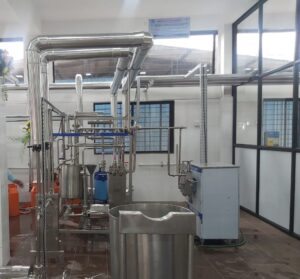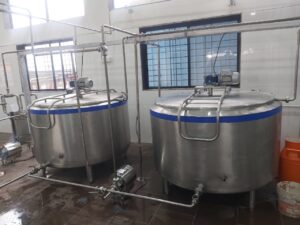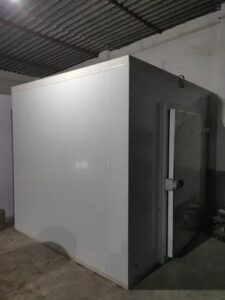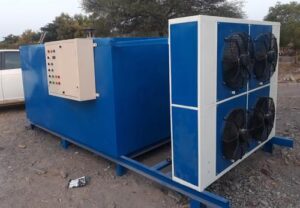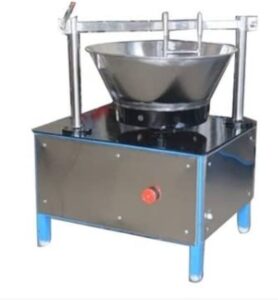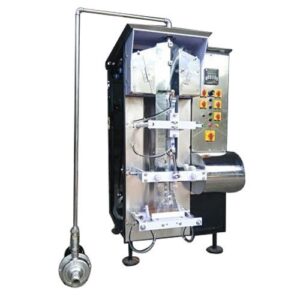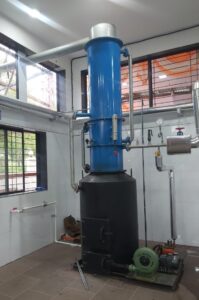The Ultimate Guide to Setting Up Your Own Mini Dairy Plant
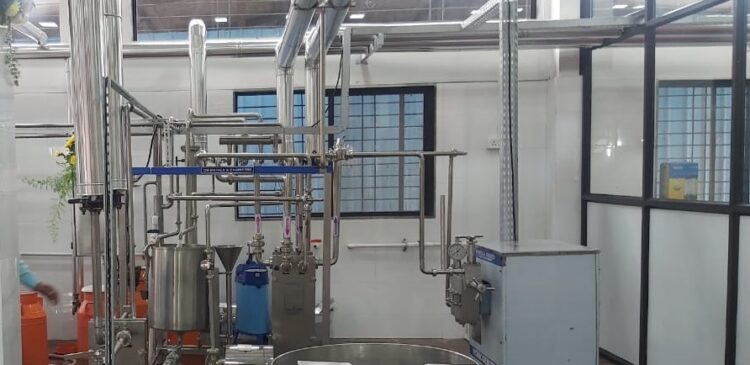
Overview of Mini Dairy Plants
Mini dairy plants are small-scale facilities where milk is processed into various dairy products. These plants are designed for local or regional markets, and they can range in size from small setups to larger operations. In a mini dairy plant, milk is typically pasteurized, homogenized, and then processed into products like milk, yogurt, cheese, and butter. The setup of these plants can vary based on the desired products and production capacity, making them versatile for different needs.
MilK Pasteurization Plant with Homogenizer and Separator
Tanks for the Storage of Milk Inside the Plant
Cold Storage for Milk Storage
Ice Bank tank IBT- For Chilled Water Generation
Khoa Vat for the Milk Boiling , Sweet Preparation
Milk Packaging Machine
Boiler for Hot Water Generation
Benefits of Setting Up a Mini Dairy Plant
Setting up a mini dairy plant has numerous benefits. By having your own dairy plant, you have control over the entire production process, ensuring the quality and freshness of your dairy products. You can also customize your products to meet the preferences of your customers, giving you a competitive edge in the market. Additionally, setting up a mini dairy plant allows you to create a sustainable source of income while contributing to the local economy by providing employment opportunities.
Planning Your Mini Dairy Plant
To start planning your mini dairy plant, first, decide on the scale of your operation. Consider factors like the space you have available and the amount of milk you want to process. Next, think about the equipment you will need, such as milking machines, refrigeration units, and pasteurization equipment. It’s crucial to also consider regulatory requirements and obtain any necessary permits. Lastly, create a business plan outlining your goals, target market, and financial projections. This initial planning phase is crucial for the success of your mini dairy plant.
Choosing Dairy Equipment and Machinery
Selecting the right dairy equipment and machinery is crucial for setting up your mini dairy plant. Consider the following points before making your decision:
- Evaluate the production capacity you need to determine the appropriate size and capabilities of the equipment.
- Research different types of machinery available in the market to find options that suit your specific requirements and budget.
- Ensure that the equipment is easy to operate and maintain to streamline your production process.
- Look for quality and durability in the machinery to guarantee a long-lasting investment for your dairy plant.
Understanding Dairy Processing
Dairy processing involves turning raw milk into products like butter, yogurt, and cheese. This process involves pasteurization to kill harmful bacteria, homogenization to prevent cream separation, and separation to remove fat. Additionally, dairy processing includes fermentation to make products like yogurt. Understanding these steps is crucial in setting up a successful mini dairy plant.
Ensuring Food Safety and Quality Control
It’s essential to maintain strict standards for food safety and quality control when setting up your mini dairy plant. Here are some key points to keep in mind:
- Implementing proper sanitation practices is crucial to prevent contamination and ensure the production of safe dairy products.
- Regularly testing the quality of raw materials, such as milk, and the finished products is necessary to meet regulatory requirements and consumer expectations.
- Training your staff on hygiene practices and quality control measures is vital to uphold the integrity of your dairy products.
- Monitoring and documenting all processes, from milk collection to packaging, helps track and address any potential issues that may arise.
- Investing in reliable equipment and technology that support food safety practices can enhance the overall quality of your dairy products.
Regulatory Requirements for Mini Dairy Plants
To set up your own mini dairy plant, you must adhere to certain regulations put in place by the government. These regulations aim to ensure the quality and safety of dairy products consumed by the public. Here are some key regulatory requirements you need to consider:
- Obtain necessary permits and licenses from local health authorities to operate a dairy plant.
- Follow strict hygiene and sanitation practices throughout the dairy plant to maintain cleanliness and prevent contamination of dairy products.
- Regularly test and monitor the quality of milk and dairy products to ensure they meet the required standards.
- Comply with labeling requirements for all dairy products to provide consumers with accurate and relevant information.
- Implement proper waste disposal methods to maintain environmental and public health standards.
By meeting these regulatory requirements, you can successfully set up and operate your own mini dairy plant while ensuring the safety and quality of your dairy products.
Marketing Your Dairy Products
Marketing your dairy products is crucial for the success of your mini dairy plant. You need to reach out to potential customers and let them know about the quality and variety of dairy products you offer. Here are some key points to consider when marketing your dairy products:
- Identify your target market and understand their preferences.
- Utilize social media platforms to promote your products and engage with customers.
- Collaborate with local stores or farmers’ markets to showcase and sell your dairy products.
- Offer promotions or discounts to attract new customers and retain existing ones.
- Ensure your packaging is attractive and informative to catch the eye of consumers.
- Collect feedback from customers to improve your products and marketing strategies.
- Remember, effective marketing can help you build a loyal customer base and grow your mini dairy plant.
Managing Operations and Maintenance
When it comes to managing operations and maintenance of your mini dairy plant, it’s essential to establish a regular maintenance schedule to keep equipment running smoothly. Here are some key points to consider:
Regularly clean and sanitize all equipment to prevent contamination and ensure quality dairy products.
Monitor the temperature and humidity levels in the plant to maintain optimal conditions for dairy production.
Conduct routine inspections of machinery to identify any potential issues early on and prevent costly breakdowns.
Train your staff on proper equipment handling and maintenance procedures to ensure efficient plant operations.
By staying proactive and organized in your maintenance efforts, you can guarantee a successful and sustainable dairy plant operation.
Success Stories in Mini Dairy Plant Setup
Success stories in mini dairy plant setup can be a great source of inspiration for aspiring entrepreneurs. Learning from others who have successfully established their own mini dairy plants can provide valuable insights and tips to help you navigate through the challenges of setting up your venture. By studying these success stories, you can gain a practical understanding of the key factors that contribute to a thriving mini dairy plant, such as efficient operations, effective marketing strategies, and sustainable growth tactics.

